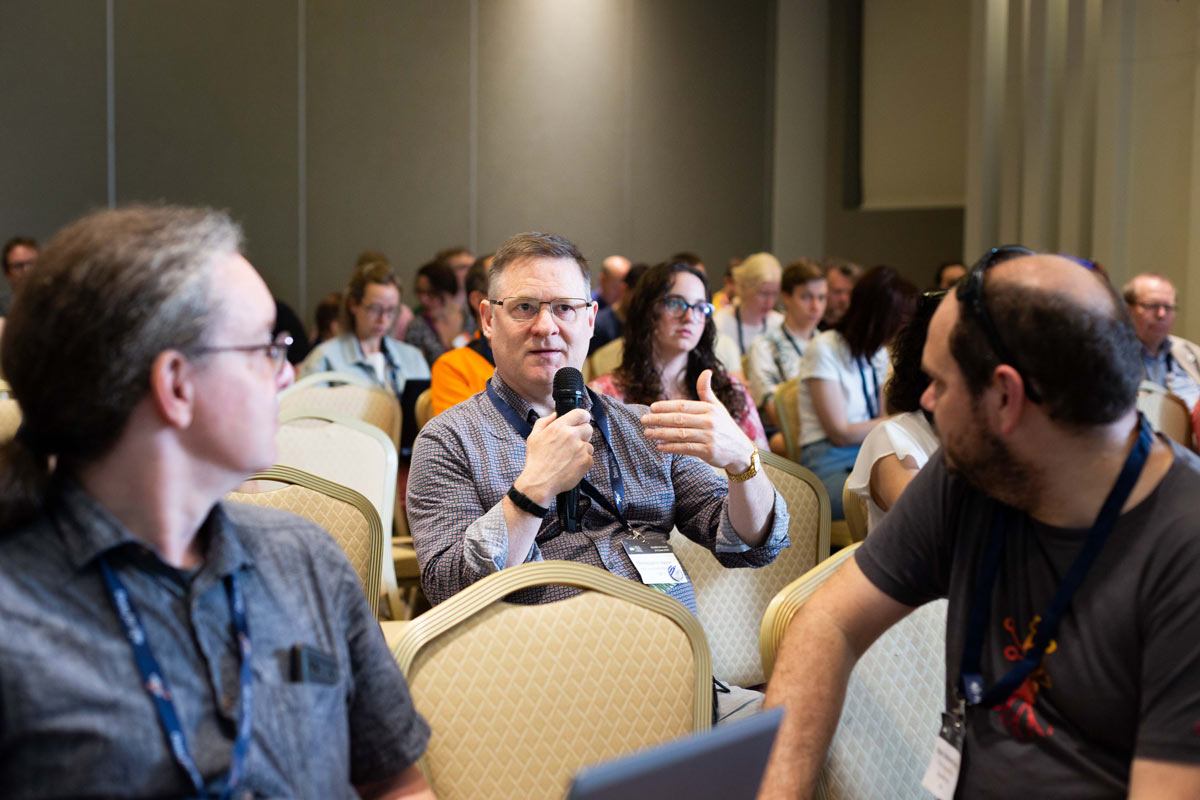The workshop “The role and landscape of ontologies for the ELIXIR Communities” was part of this year’s “ELIXIR All Hands” in Thessaloniki (Greece). The workshop was co-organized by our TA4-Lead Steffen Neumann, and about 50 participants discussed the current status of the integration of ontologies in ELIXIR.
Danielle Welter from Luxembourg started with a condensed, 15-minute version of her normally 90 minute introduction “Onto-what? Everything you (n)ever wanted to know about ontologies or were too embarrassed to ask”.
Then Pance Panov (ELIXIR-SI) and Maria Traka (ELIXIR-UK) presented “FNS-Harmony Ontology: Experiences and Lessons Learned” from the Food-and-Nutrition community, which is an application ontology to harmonise the metadata about microbiome studies, along with interventions, food and bioactives.
The last presentation was given by Manuel Feser (ELIXIR-DE, NFDI DataPlant), who explained “Annotate your Research with Context” with ARC, an NFDI DataPlant activity for ontology-supported RDM and related analyses based on the ISA framework, supporting workflows and RO-Crates.
Survey
Between presentations, more than 30 participants completed the prepared online questionnaire, reflecting a diverse and experienced audience. Most respondents identified themselves as tool developers (58%) and bioinformaticians (55%), with a notable representation of ontology creators (30%) and data reusers (27%). Participants reported varying levels of expertise in ontologies: 38% advanced, 34% intermediate, 25% novice, and only 3% expert. The Ontology Lookup Service (OLS) was the most commonly used resource (73%), followed by the NCBO BioPortal (36%) and direct project websites (33%).
The main challenges highlighted included the complexity of the ontology landscape, integration difficulties, lack of knowledge, and missing terms. Strengthening interoperability and promoting integration best practices emerged as the most critical tasks for ontology improvement (both scored 3.73), with improving documentation and training following at 3.67. Interest in a FAIR CookBook-type resource was moderate, with 18% of participants willing to contribute to it, 21% willing to use it, and 52% expressing potential interest. Finally, 65% of participants preferred to develop or use ontologies with consistent and validated reasoning, indicating a strong demand for robust, high-quality resources.
Finally, the organisers and all speakers were available for questions, and the ensuing discussions were lively and fruitful, exposing different points of view on ontology principles between ontology purists and practitioners, but also identifying potential issues in ontology discovery, usage and adaptation across ELIXIR (and elsewhere), as well as possible next steps to improve.
Outlook
A potential outcome could be a FAIR cookbook article on integration of ontologies into your applications, targeting those bioinformaticians and tool developers we had in the audience.
Participants were invited to submit to the joint Gatersleben Research Conference (GRC) and International Symposium on Integrative Bioinformatics (IB) 2025 from 10.-12.09.2025, and the 4th Ontologies4Chem workshop in Limburg an der Lahn, November 11-13.
The workshop was organised by Franck Giacomoni (FR, INRAe), Nils Hoffmann (DE, FZ Jülich), Monica Chagoyen (ES, CNB-CSIC), Claire Rioualen (FR, IfB), Helge Hecht (CZ, Recetox), Thomas Payne (UK, EMBL-EBI), and Steffen Neumann (DE, IPB Halle).

(c) ELIXIR